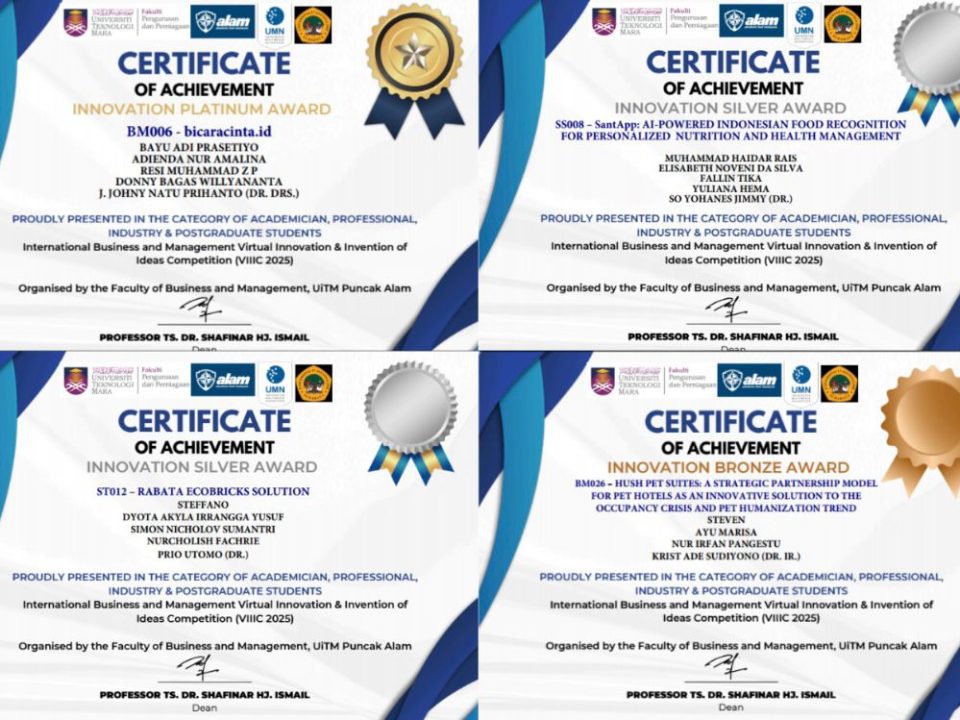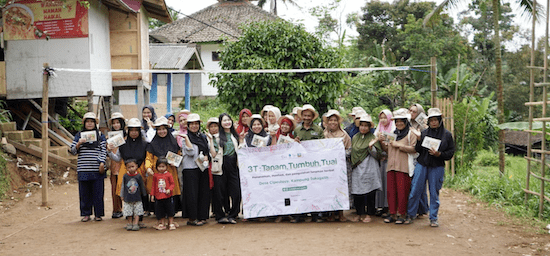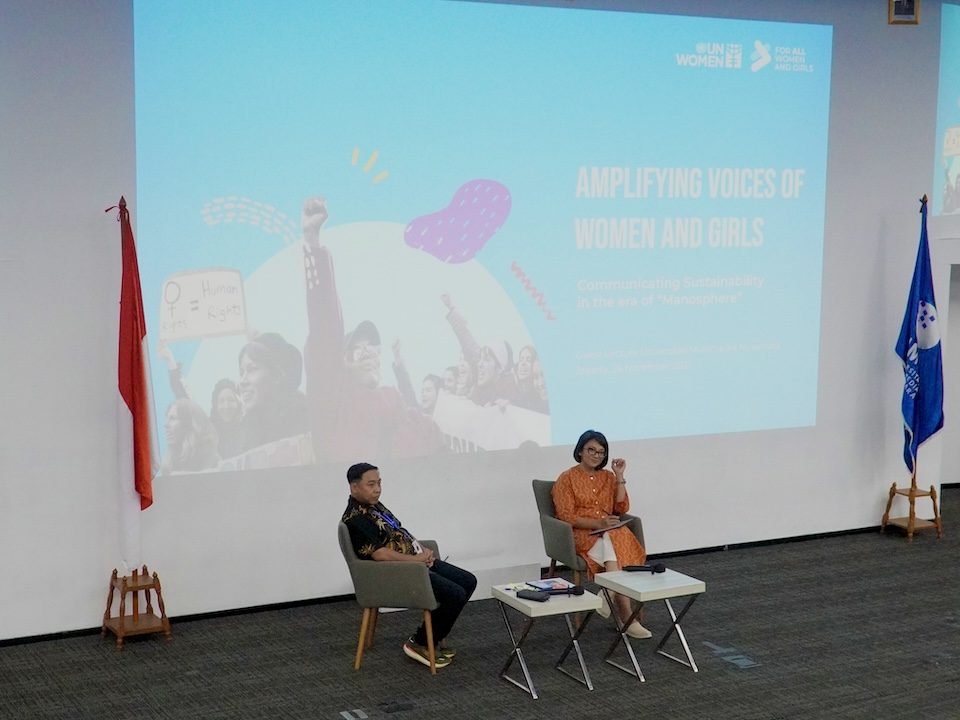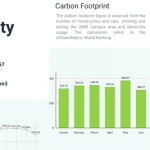
Building a Data-Driven Approach to Energy Efficiency at UMN
December 17, 2024
UMN’s Ethical Investment Policy: Supporting a Greener, Sustainable Future
December 18, 2024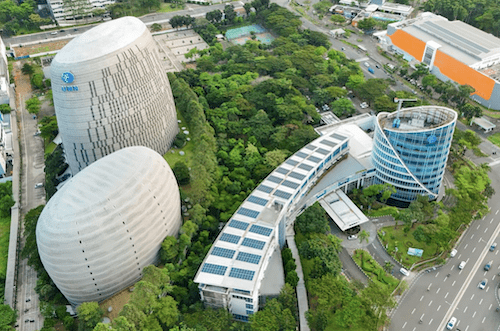
UMN Green building (Doc. UMN)
Universitas Multimedia Nusantara (UMN) has established clear policies to ensure that all new construction and renovation projects on campus comply with energy efficiency and environmentally responsible building standards. This commitment is formalized through the university’s Green Campus Policy and reinforced by the Rector’s Decree on Eco-Friendly Campus Management (March 2022), which provides guidance for sustainable design, construction, and facility operations.
In practice, UMN refers to the Green Building Council Indonesia (GBCI) Greenship standards, alongside the national regulation Ministry of Public Works and Housing Regulation No. 21/2021 on Green Buildings, as the basis for its internal policy. These frameworks emphasize the efficient use of energy and resources, the integration of natural systems, and long-term sustainability in building management.
The policy is consistently applied in both new buildings and renovation projects. For instance, campus buildings are designed to optimize natural lighting and ventilation, reducing reliance on artificial cooling and lighting. Double-glass window installations and insulated materials are used to minimize heat transfer, while high-performance chillers and air-conditioning systems with strong Coefficient of Performance (COP) ratings are installed to reduce energy demand. Rainwater harvesting and water recycling systems are also incorporated to complement energy-saving efforts.
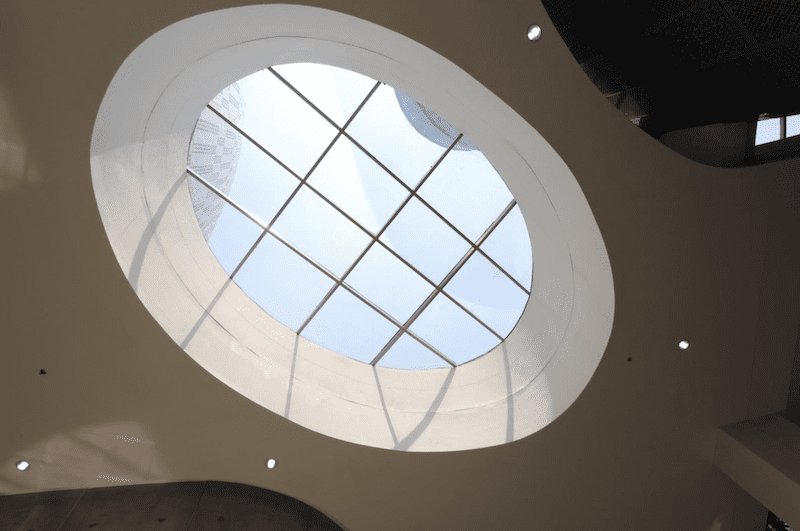
Optimizing natural lighting in building (Doc. UMN)
Green open spaces across the campus further contribute to energy efficiency by lowering the urban heat effect and reducing the cooling load within surrounding buildings. Projects such as the New Media Tower and the P.K. Ojong–Jakob Oetama Tower were both developed under these policies and have been recognized for meeting eco-friendly building standards in Indonesia.
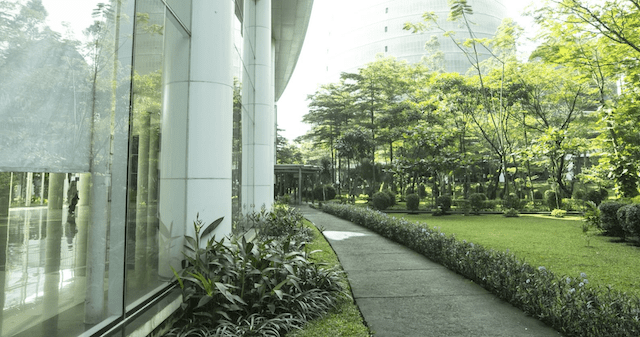
Green open spaces across the campus (Doc. UMN)
The implementation of these measures has resulted in measurable benefits. UMN has recorded a reduction in electricity use per square meter in newer facilities compared to older buildings, demonstrating the tangible impact of policy-driven design and construction practices. By embedding energy efficiency requirements into its campus development policy, UMN ensures that sustainability is not an afterthought but a defining principle of its growth.
In 2024, UMN expanded its campus with the addition of floors 19, 20, and 21 to accommodate new classes for the Architecture and Professional Architecture Study Programs. Despite the increased space and electrical load, UMN remains firmly committed to energy efficiency. The renovation and upgrade of these new floors were designed with energy-saving principles in mind, ensuring that architectural spaces not only support educational activities but also serve as a living lab for sustainable design and energy-efficient building practices. This approach reflects UMN’s dual goal of fostering academic excellence while modeling responsible environmental stewardship.

